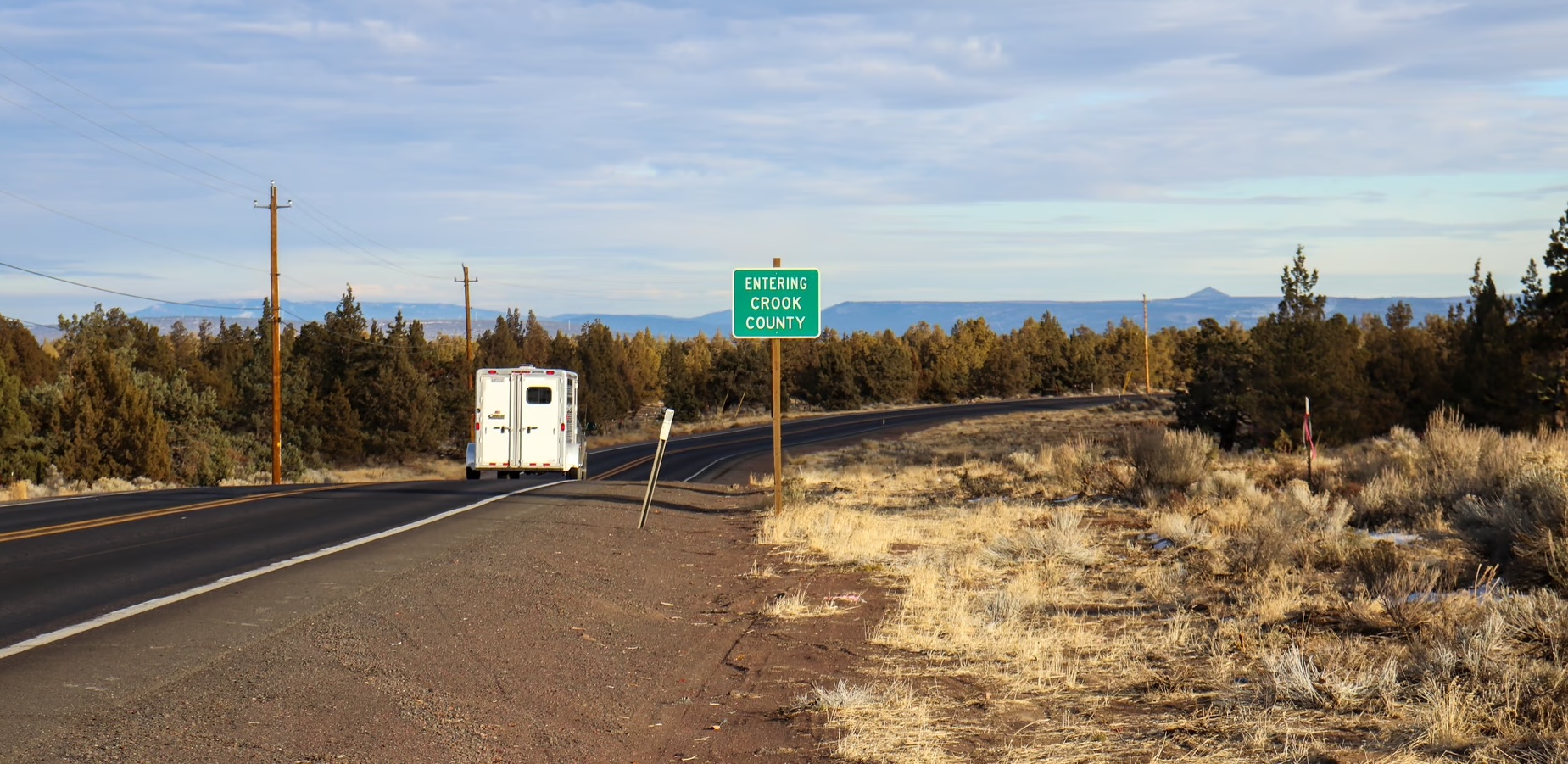
By MONIQUE MERRILL/Courthouse News Service
SALEM — A grassroots movement intent on shifting the Oregon-Idaho border some hundreds of miles continues pushing for Oregon leaders to consider its merits.
Last week, a cohort of Republican state representatives introduced a bill that would create the “Move Oregon-Idaho Border Task Force” to document what legislative processes are required to shift the state border.
 The bill is the latest development in the Greater Idaho movement’s grandiose attempt to renounce state lines so Eastern Oregon counties, which are largely rural and Republican, can join a state whose politics better represent them.
The bill is the latest development in the Greater Idaho movement’s grandiose attempt to renounce state lines so Eastern Oregon counties, which are largely rural and Republican, can join a state whose politics better represent them.
“The people of Eastern Oregon have made clear they want to explore moving the border and joining Idaho,” Matt McCaw, executive director of the group, said in a statement. “If the Oregon Legislature truly believes in democracy, they will honor those voters’ wishes and move forward on making a border change happen.”
Last month, an Oregon Republican senator introduced a similar, though less proactive, bill intended to invite the Idaho Legislature to engage in border talks with Oregon. Shortly after introducing that bill, the group sent a message to lawmakers by way of a billboard campaign in the state capital. The messages run along digital billboards along Interstate 5 in Salem, Oregon, and implore Oregon elected officials to “Respect Rural Voices – Free Eastern Oregon” and similar sentiments.
The two bills — and five billboards — come on the heels of a largely successful campaign to rally support from Eastern Oregon counties, 13 of which have passed measures supporting the movement. Of those, eight have sent letters to the legislature requesting continued discussions with Idaho.
Not very feasible
While the Greater Idaho group strongly suggests that redefining borders established since the 19th century is practical, outside scholars remain doubtful about its feasibility.
“Overall, I think it is still extremely unlikely to succeed,” said Norman Williams, a law professor at Willamette University in Salem.
Williams published a skeptical op-ed about the movement in 2022, and in the three years that have passed, he hasn’t seen any changes that would clear the way for the movement to prevail. For starters, it would be expensive. Williams estimates it would cost Idaho billions to pay Oregon for the land. Additionally, it’s not an easy task to get every legislative body in agreeance on a project as large as turning roughly two-thirds of one state over to its neighbor.
But perhaps most importantly, Oregon, a state that reliably votes Democrat, is unlikely to cede an electoral vote to Idaho, a state that reliably votes Republican.
“ At the end of the day, the Oregon Legislature, whose consent is necessary for this, is still controlled by Democrats who are not going to do this,” Williams said.
Even if the movement gained national support from Republicans, Williams said he thinks it’s unlikely it would be more than superficial support due to the dangerous precedent it would set.
“ I think they will understand that while this particular proposal would benefit Republicans, I think they understand that once you start changing borders for political reasons, as this Greater Idaho Movement is proposing, the limits on doing so come off,” Williams said. “ I think even the White House and Republicans would be wary of the notion of, ‘Hey, let’s start rejiggering state borders to produce politically homogenous states.’”
Despite the low chance of success, Williams noted that the movement has started some important conversations within the state.
“ Eastern Oregon, quite frankly, since statehood in the 19th century, has always felt itself marginalized from the rest of Oregon from west of the Cascades and, in particular, Portland,” Williams said. “ I think this current Greater Idaho movement is bringing that sense of isolation and marginalization to the forefront and reminding state leaders in Salem that Eastern Oregon feels like it’s been left out.”
The movement has highlighted funding disparities between the largely urban west and the rural east.
“ While I don’t think that we’re going to be moving state borders anytime soon, I do hope that state leaders, both the governor and in the state legislature, take those grievances seriously,” Williams said.





















I think the Oregon Legislature should really consider this move for the people of eastern Oregon.
Even better idea … erase the border altogether and join the two states as one. Together, they have a bit more than half the population of New York City.
I live in Eastern Oregon and I am very much opposed to the idea of a border restructuring between Oregon and Idaho. I don’t think the people of Eastern Oregon (many are Republicans) realize what the impact on state employees would be, to include all the teachers who pay into their PERS benefit system. Also the disparity between wages for these workers as well as the minimum wage difference between Oregon and Idaho. I hope that our elected officials have more common sense and forethought than these extremists.
Originally Oregon as a territory in 1848 included all of Washington state all of Idaho state parts of western Montana state and parts of western Colorado state. By 1853 Oregon territory area included middle and southern part of Idaho state, western part of Colorado state and a tip of Southwest Montana state. Maybe northern Idaho should become part of Washington state’s eastern boundary and middle and southern Idaho state could become part of Oregon’s eastern boundary. Maybe this would give eastern Oregon voters a much needed opportunity for voting fairness and strength in rural issues. Not sure how a state capital would be determined.
Mr. Williams comments make sense. I fail to see the why of it. If you’re feeling left out what are you doing to make yourselves heard? I can’t help but think of elementary school when the kids who brought the ball got mad cause things weren’t going their way and took their ball and went home.
To those who want to move the border. If you are not happy in eastern Oregon sell your place and move to Idaho. That way you can have all the state attention that you desire. Police and self-appointed storm troopers keeping a close eye on you 24/7. Besides, I hear that people burned out in the L.A. fires would love to buy land in eastern Oregon for the tranquility and lack of the state looking over their shoulder.
Just ‘sayin.